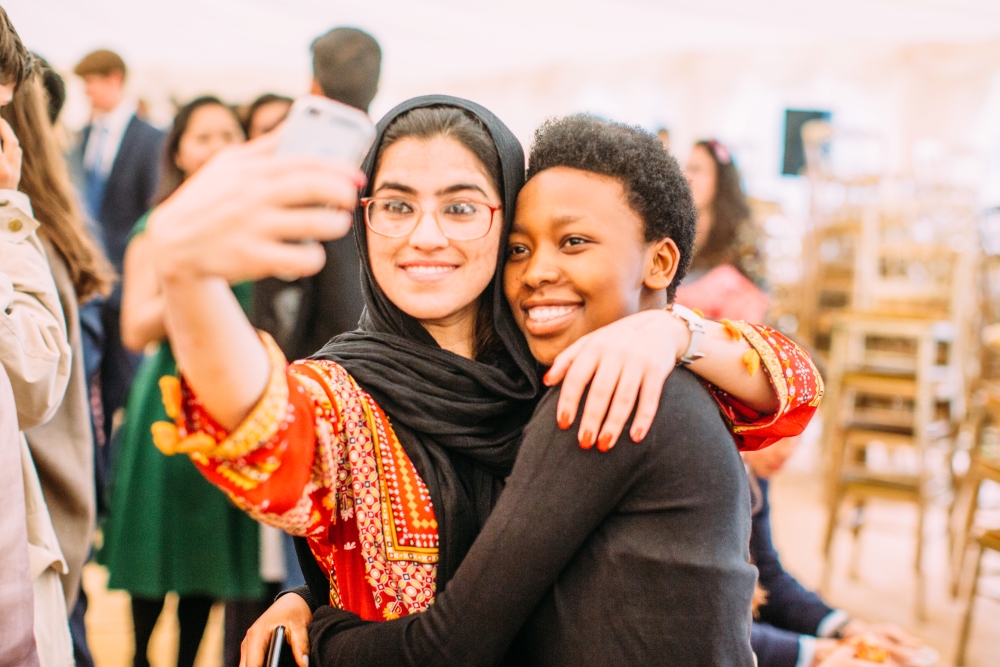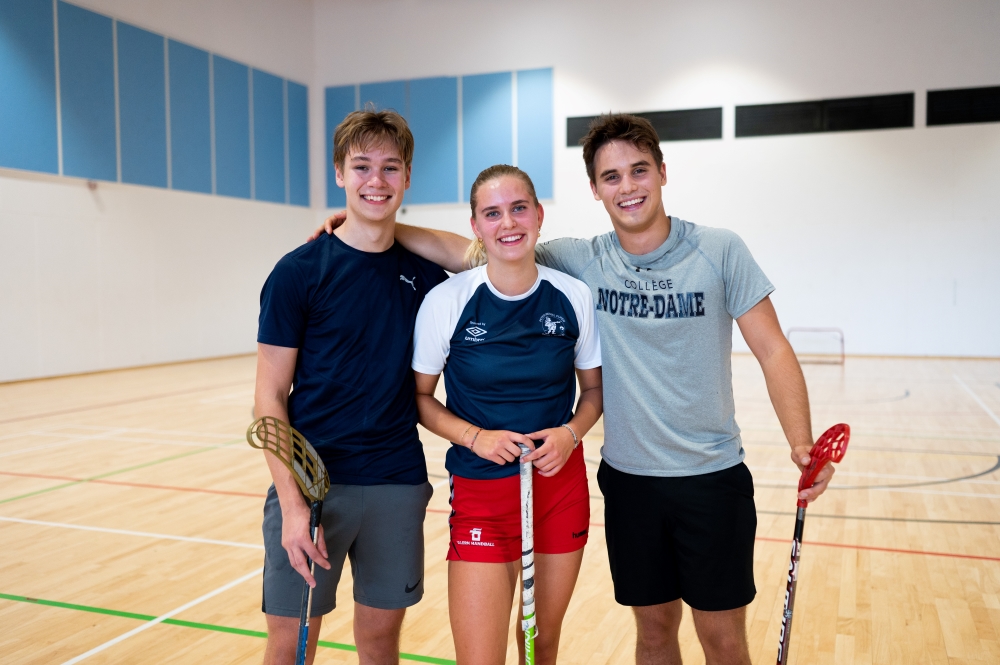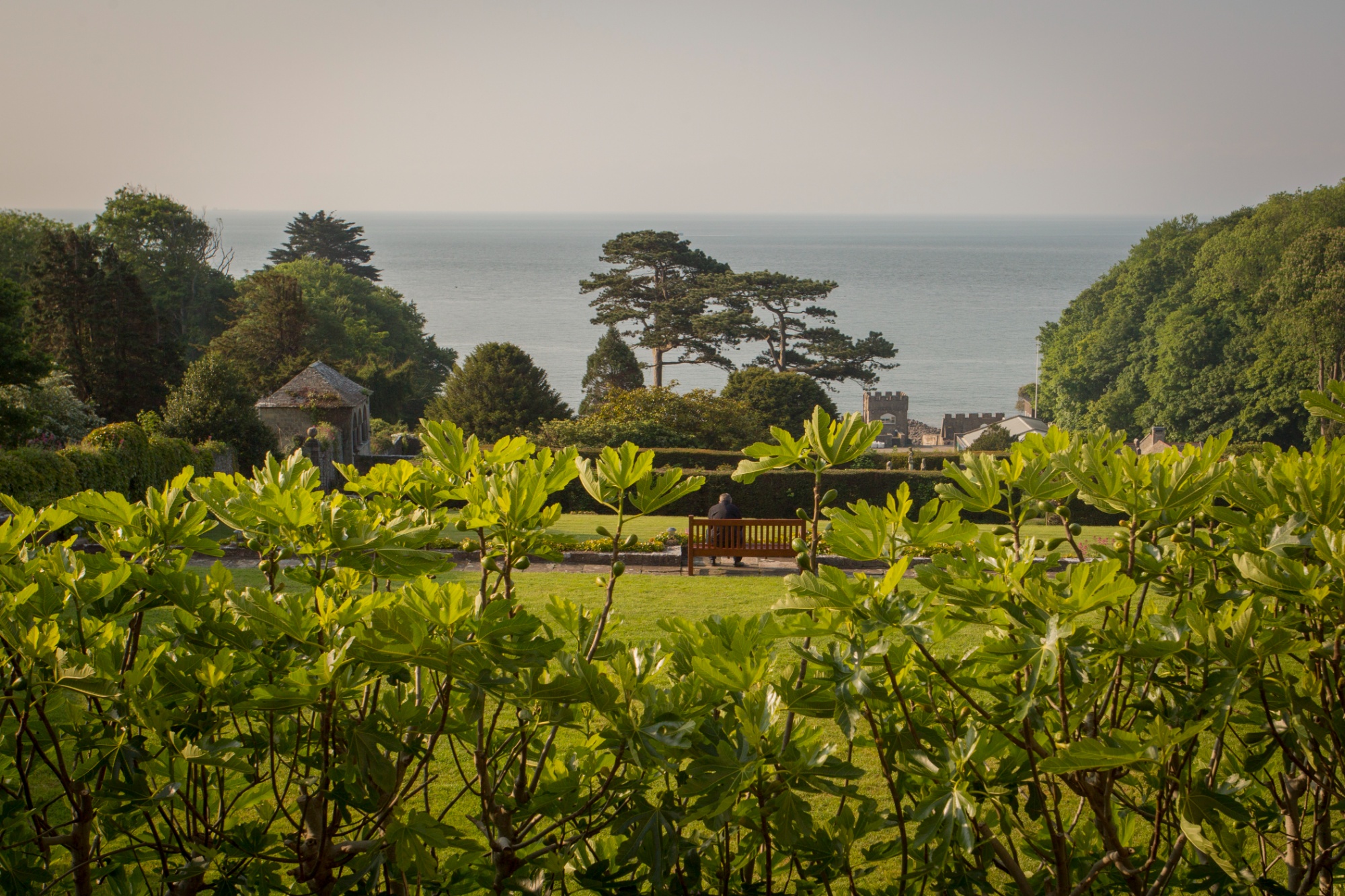UWC Atlantic
.JPG)
Vale of Glamorgan, Wales, UK
- 380 students, aged 15 to 19
- Founded - 1962
When it opened its doors in 1962, UWC’s founding school - UWC Atlantic - was designed to promote international understanding through education. To this day, the school provides a platform for young individuals to learn through shared experiences and be empowered to make a positive difference.
Three unique features
Historic Heritage: Located in the 12th Century St Donat’s Castle in the United Kingdom, UWC Atlantic is the founding college of a global education movement. The Rigid-Hulled Inflatable Lifeboat (RIB) was pioneered here.
Academic Innovation: Students get the chance to take part in a project-based curriculum, focused on addressing complex ‘systemic’ real-world challenges, including food, biodiversity, energy and migration.
Atlantic Outdoors: Focusing on physical challenge, service to others, initiative leadership and teamwork in addition to the academic programme at the College.
Academic curriculum
UWC Atlantic provides two distinct two-year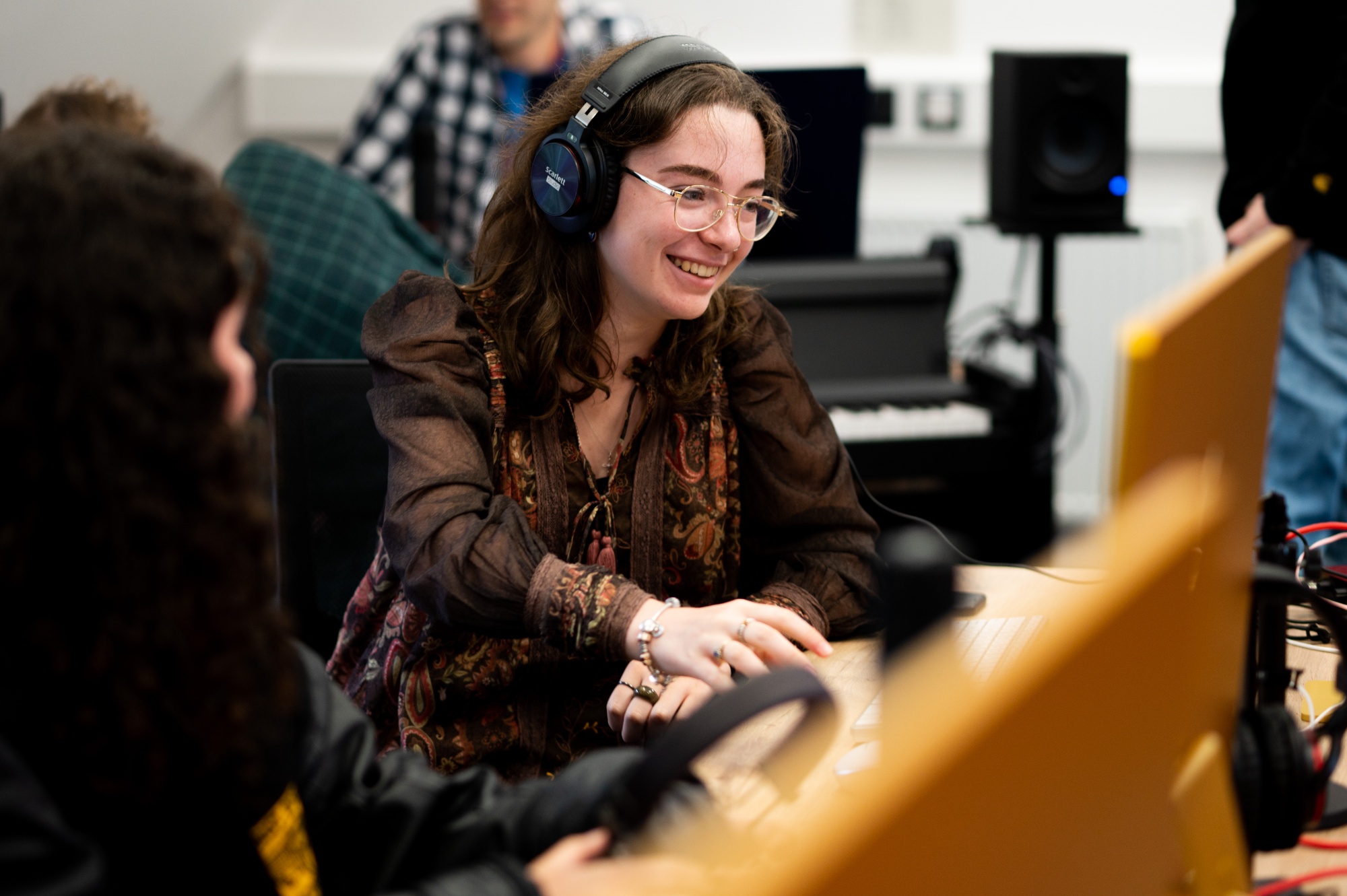 educational pathways for students aged 15-19: the International Baccalaureate Diploma Programme and the Systems Transformation Pathway, an innovative alternative to the traditional IB curriculum.
educational pathways for students aged 15-19: the International Baccalaureate Diploma Programme and the Systems Transformation Pathway, an innovative alternative to the traditional IB curriculum.
Average class size: 14 students
International Baccalaureate Diploma Programme
Most students follow the International Baccalaureate Diploma Programme (IBDP), which is made up of three core components and six subject groups.
Core components
- Theory of Knowledge: students reflect on the nature of knowledge and on how we know what we claim to know.
- The Extended Essay: an independent, self-directed piece of research, finishing with a 4,000-word paper.
- Creativity, Activity, Service (CAS): students take part in a range of experiences and at least one project.
Subjects
- Studies in language and literature: English Language and Literature, Spanish Literature, Self-taught Languages
- Language acquisition: English B, French B, Spanish B
- Individuals and societies: Economics, Geography, History, Social & Cultural Anthropology, Global Politics, Environmental Systems & Societies
- Sciences: Biology, Chemistry, Physics, Environmental Systems & Societies
- Mathematics: Maths: Analysis and Approaches, Maths: Applications and Interpretation
- The arts: Visual Arts, Music
Systems Transformation Pathway
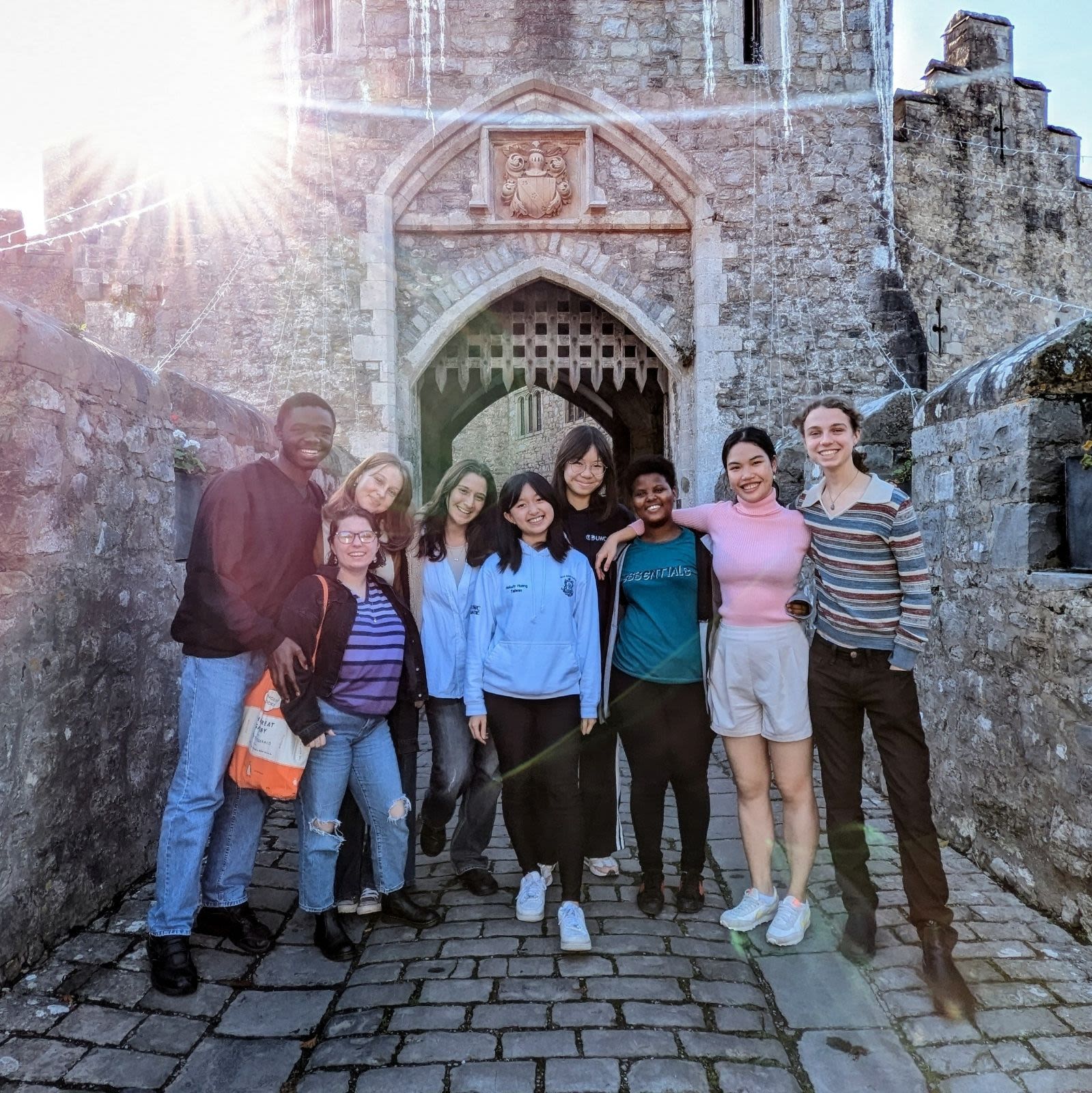 Since 2023, UWC Atlantic has offered an alternative piloted educational programme in partnership with the International Baccalaureate called The Systems Transformation Pathway.
Since 2023, UWC Atlantic has offered an alternative piloted educational programme in partnership with the International Baccalaureate called The Systems Transformation Pathway.
This course equips students with the skills, attitude and abilities they need to tackle complex and interdependent systemic challenges. It is fundamentally action-oriented, and it replaces written exams and classroom-based learning with relevant, ambitious, necessary work in complex and authentic real-world contexts. The bespoke curriculum shines a spotlight on Transformative Change, Systems Leadership and Just Futures across the core IBDP curriculum. Students then apply the knowledge they’ve gained, immersing themselves in the impact areas that mean the most to them personally, whether that be biodiversity, energy, food or migration. This course equips students to go beyond treating symptoms to advance transformative change at a systems level.
More information on www.atlanticcollege.org/changemaker-initiatives/systems-transformation-pathway.
Co-Curricular
![]() All students at UWC complete a co-curricular programme called Creativity, Activity and Service (CAS) - an integral part of the IB qualification. Students get the opportunity to choose a physical, a creative and a social service activity.
All students at UWC complete a co-curricular programme called Creativity, Activity and Service (CAS) - an integral part of the IB qualification. Students get the opportunity to choose a physical, a creative and a social service activity.
Physical activities:
- Badminton
- Ballet Fit
- Basketball
- Boatbuilding and powerboating (Atlantic Pacific at Atlantic)
- Box fit
- Floorball
- Football
- Lifesaving
- Paddlesports
- Rugby
- Sports and Outdoor Fitness
- Swimming lessons
- Tennis
- Volleyball
- Yoga
- Zumba
Creative activities:
- Amnesty International
- Model United Nations
- Ceramics
- Eco Crafts
- Digital Photography
- Printmaking
- Music composition
- Painting
- Drama club
- INK (college newspaper)
- Yearbook
- Venture For All
- Flash (college photography)
- International Show
- Guitar Club
- Programming (IT)
- Orchestra
- College Choir
- Cookery Club
- World News
- Girl-Up
- LASS (Land and sea Stewardship)
- Croeso Llantwit
- Lighthouse Project (UWC initiatives)
Social service:
- Music Therapy for dementia patients
- Cardiff refugees programme
- Visiting elderly people’s residential homes
- Computer Club for elderly
- Supporting in local primary schools
- Campus Care (gardening, valley and building projects)
- Sustainable technology
- Sheep farming
- Donkey care and therapy
- Swap Shop
- Kitchen service
- Aquatic confidence sessions for local children
- Outdoor programme (ALP) – sessions for local school children
- Civic Engagement (for local young people on campus)
- Global Education Programme (for local children on campus)
- Language Guides
- Peer Listeners
- Cycle Scheme
- Activity Friend (Dementia befriending)
- Valeways (Maintain footpaths throughout the countryside)
- Development Office
- Chicken Service
- Movement for Life (Tai Chi for Local residents to come into campus)
Facilities and residences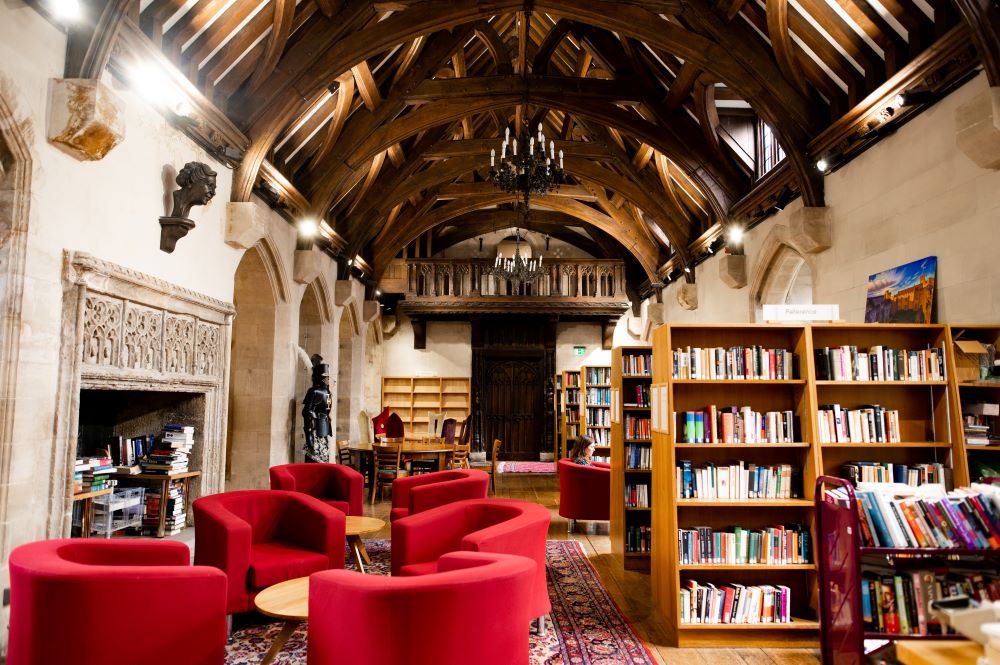
The campus hosts an arts centre, where student-led productions, community meetings and film screenings take place, and the historic castle includes a library and gothic-styled dining hall. Surrounded by woodland and situated on the seafront, students are also eligible to volunteer at the National Coastwatch Institution Station, which assists in the protection and preservation of life at sea.
Facilities
- Medical Centre
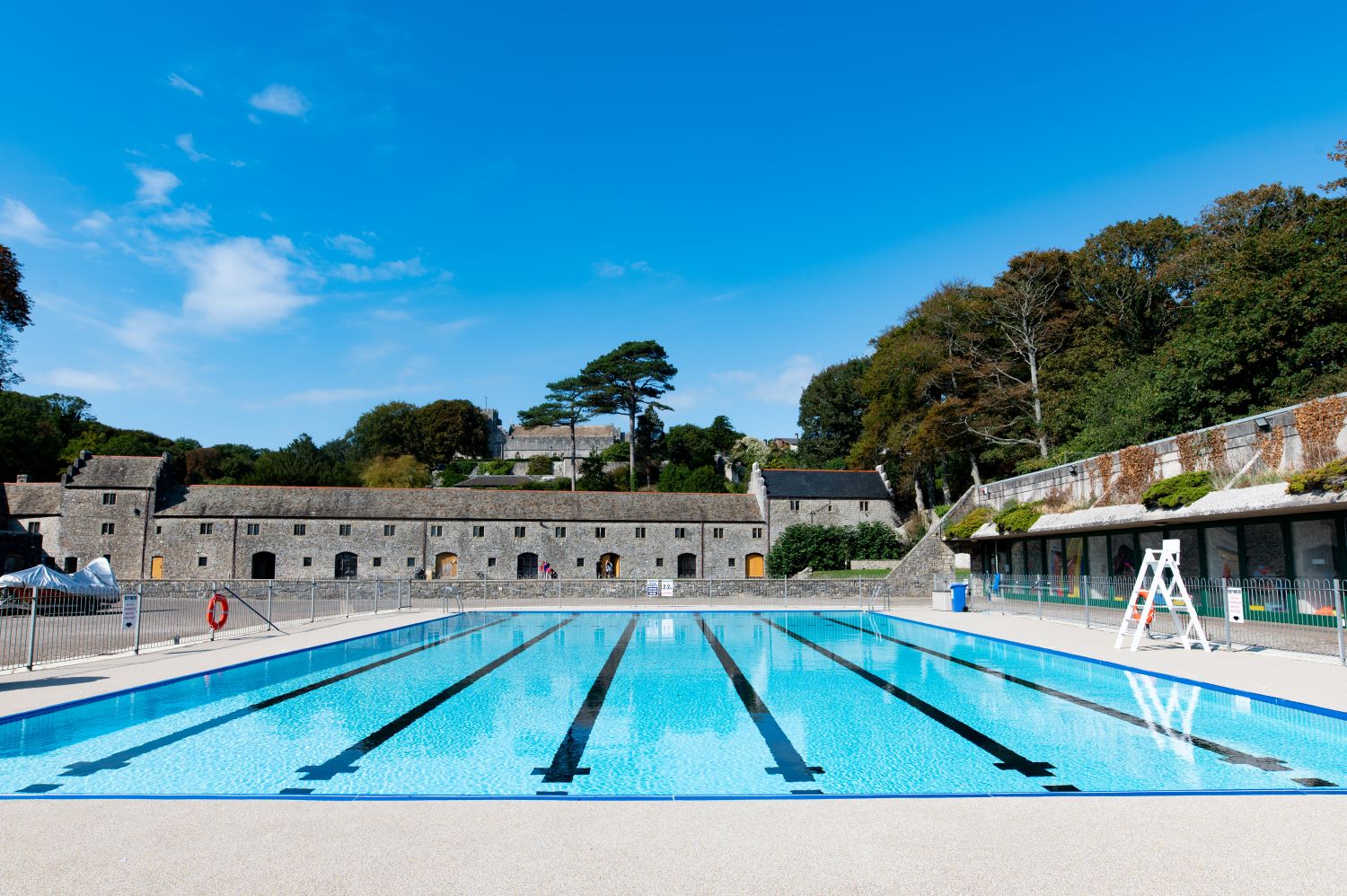
- Theatre Stage
- Indoor swimming pool
- Outdoor swimming pool
- Football pitch
- Gym
- Basketball courts
- Tennis courts
- Arts Centre
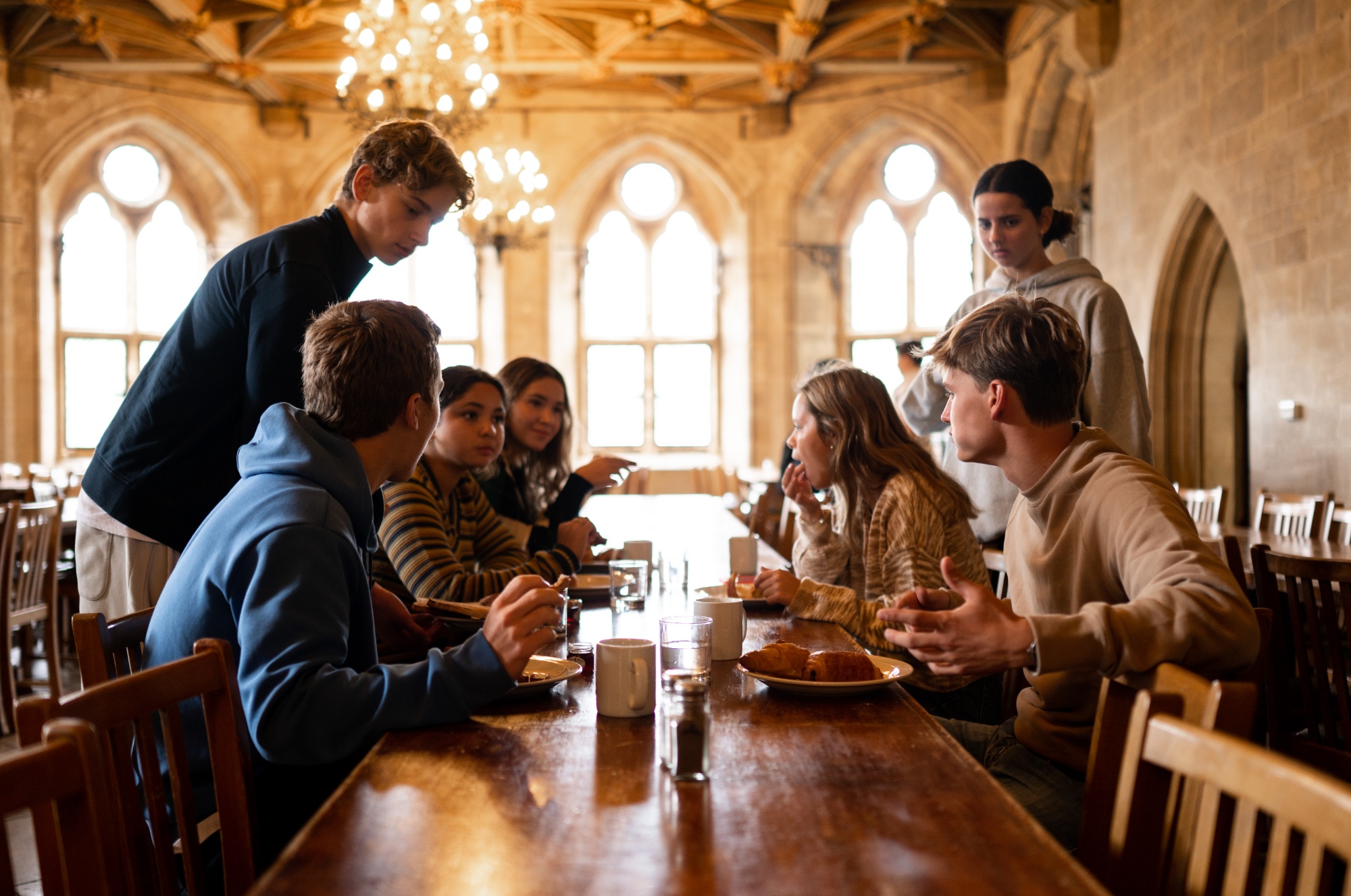
- Music Studio
- Library
- Sports hall with gym and dance studio
- Multi-faith prayer room
- Anglican chapel
- Climbing wall
Residential accommodation
There are eight student residences. Typically, boys and girls are separately accommodated on different floors/wings. Most students are in rooms of four with nationalities and cultures deliberately mixed. All houses have a common room, kitchen and a quiet/study room with computer and Wi-Fi access.
Wellbeing support
Medical provisions
- Health centre open 7 days a week and staffed by two full-time nurses and a wellbeing assistant
- Local doctors (GPs) on campus twice a week.
- On-call provision 24/7 through our pastoral team and night staff
- Local hospitals located 30 and 45 minutes away
Academic and emotional wellbeing
The school supports students’ academic and emotional wellbeing through:
- Clinical Psychologist who runs the Health and Wellbeing team on campus
- Three counsellors who offer social-emotional support through both individual appointments or drop-in sessions
- House-parents available to support all aspects of student life
- Weekly meetings with personal tutors to oversee academic, social and emotional wellbeing
- Tutors from the same house meet regularly with House Parents (parents providing residential
- support to students)
- Tutors living on-site do regular house check-in duties
